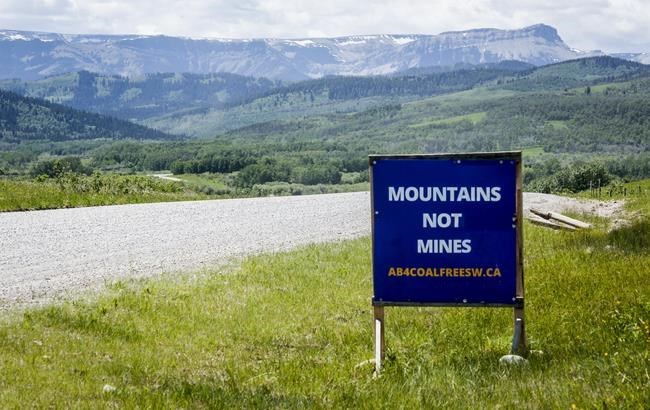Two coal companies planning to develop mines in Alberta's Rocky Mountains say they hope to move forward despite new regulatory and political roadblocks.
"We feel that our mine plan that we are going to present is unique to the situation we're in," said Peter Doyle, head of Montem Resources, which hopes to build a new open-pit mine in southern Alberta on a previously worked deposit.
Riversdale Resources, which had its proposed Benga Mine denied last week by regulators, said in a statement it will study the decision to ensure it was fair.
"It was expected, consistent with past practice, that where the (review panel) had concerns about specific matters that it would issue a decision that would allow development subject to those concerns being adequately addressed," said a company statement.
"We will be engaging with the relevant authorities ... to obtain assurance that the process has been fair and transparent, has accorded sufficient weight to recognized experts and established industry practices, and that the decision is not effectively an anti-development decision."
The statement said the company is considering its options.
Although Alberta has seen a rash of exploration for such mines in the summits and foothills of the eastern slopes over the last 14 months or so, the industry has had a rough couple weeks.
First, Federal Environment Minister Jonathan Wilkinson said thermal coal mines no longer fit with federal climate-change policy. A few days later, he added any coal mine that might release the contaminant selenium will face a federal review.
Then, a joint federal-provincial review panel found the environmental risks posed by the proposed Benga mine outweigh its economic benefits.
Doyle said Montem's Tent Mountain plan could still avoid federal involvement.
"They're having another look at it and we're waiting to hear the outcome."
He said the project is about a fifth the size of the Benga proposal. As well, because Tent Mountain is on a site that was previously mined and not well reclaimed, Doyle said Montem could leave the site in better shape than it was found.
"We actually reduce the downstream selenium from the current levels," he said.
Doyle said Montem's plans predate the United Conservative government's decision to revoke a policy that protected the Rockies from open-pit coal. That's part of the reason they chose the site they did, he said.
"Rachel Notley was premier," he said. "It was nothing to do with the UCP.
"We had very deliberately bought assets (on less sensitive land), believing they were the assets that had the biggest chance of success."
The exploration rush caused by the revoking of the coal policy only increased Montem's exploration costs, said Doyle.
The policy was restored after a loud public outcry and the business environment changed, he said.
"All the flipping and flopping on coal policy has done us no good whatsoever," he said. "A changing regulatory environment is very difficult to plan in."
Although Montem's stock price has declined to under four cents (AUS), Doyle said Albertans shouldn't worry about the company not having the resources to live up to reclamation promises. It's normal for mining companies to raise money as they need it, he said.
"You get funded for your next piece of work, you go and do it, you go and raise money based on those results," he said. "We are fully funded right now for the activities we're undertaking."
Alberta holds a security bond from Montem under the Mine Financial Security Program, he said.
Still, Alberta Opposition New Democrat Marlin Schmidt said the province could have saved everyone a lot of uncertainty if it had done some environmental due diligence before revoking the 1976 policy. He said testimony at the legislature's Public Accounts Committee from senior Alberta Environment bureaucrats revealed no such advance work was requested.
"What was clear was that the department did no proactive work in terms of forecasting what the environmental impacts would be," he said.
Schmidt said the government is repeating the mistakes of the oilsands boom, when projects were approved piecemeal without any thought of how their environmental and social effects would add up.
"They refused to learn their lesson," he said.
Schmidt said Alberta needs an overall plan for development in the area.
"We can't rely on this project-by-project analysis anymore," he said.
This report by The Canadian Press was first published June 22, 2021.
— Follow Bob Weber on Twitter at @row1960
Bob Weber, The Canadian Press




